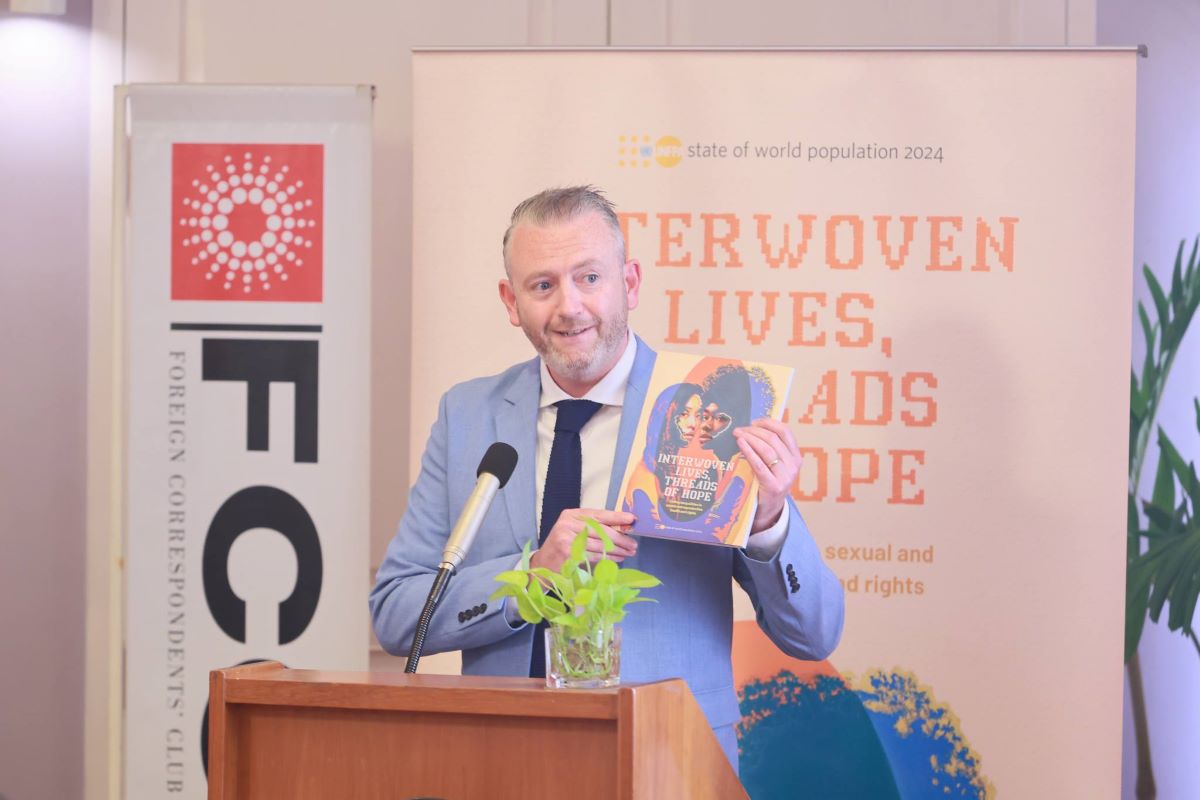KUALA LUMPUR, June 28 – Sweeping global gains in sexual and reproductive health and rights over the last thirty years are marred by an ugly truth — millions of women and girls have not benefited because of who they are or where they were born, according to the 2024 State of World Population report by UNFPA, the United Nations’ sexual and reproductive health agency.
Entitled Interwoven Lives, Threads of Hope: Ending Inequalities in Sexual and Reproductive Health and Rights, the report highlights how racism, sexism and other forms of discrimination continue to block broad gains in sexual and reproductive health for women and girls.
In his statement during the launch of the report, Pio Smith, UNFPA regional director for Asia and the Pacific, said the report shows that inequalities and inequities are widening.
“Human reproduction is being politicised. The rights of women, girls and gender-diverse people are the subject of increasing pushback.”
Failing To Sufficiently Reach Those Most Marginalised
Women and girls who are poor, belong to ethnic, racial and indigenous minority groups, or are trapped in conflict settings, are more likely to die because they lack access to timely health care, according to the report.
Women from indigenous ethnic groups are more likely to die of causes related to pregnancy and childbirth.
Women with disabilities are up to 10 times more likely to experience gender-based violence than their peers without disabilities.
People of diverse sexual orientation and gender expression face rampant violence and steep barriers to care.
In Asia and the Pacific alone, more than six women die every hour from preventable causes related to pregnancy and childbirth.
Less than one in four sexually active unmarried young people use contraception, and on average, half of the women from the Pacific Islands have experienced physical or sexual violence by an intimate partner at least once in their lifetime.
This is despite the fact that progress has been made worldwide. “In the last three decades, the proportion of women serving in parliaments across the world has more than doubled,” said Smith. “We have secured laws against domestic violence in more than 160 countries.”
Progress has also taken place in the Asia and Pacific region, he continued, adding that people in the region are living longer.
“It is safer for women to give birth and more possible for a girl to choose her life’s trajectory. With a reduction in child marriage, there has been a steady decline in adolescent pregnancy,” he said.
“For example, in 2000, there were 56 births per 1,000 young girls aged between 15 and 19 years old. In 2023, this figure dropped to less than 24 births per 1,000 young girls representing a 32 point decline over the last 23 years.”
However, Smith said progress appears to be slowing down. “Despite this progress, inequalities within societies and health systems continue to exist, failing to sufficiently reach those most marginalised.
“Our work remains unfinished, but with sustained investment and global solidarity, it is not insurmountable.”
Troubling Reality
The evidence in the report reveals the troubling reality that health care improvements have primarily benefited wealthier women and those from ethnic groups with better access to services.
“We have seen, for example, that barriers to healthcare fell fastest for women who are more affluent, educated and privileged,” said Smith. “In other words, we see that the groups that have benefitted the most are those that had the fewest barriers to begin with.”
“Access to modern contraceptives, for example, varies by many factors such as ethnicity, refugee and migration status, education, and location.”
Women and girls with disabilities, migrants and refugees, ethnic minorities, LGBTQIA+ individuals, people living with HIV, and those from disadvantaged castes face greater sexual and reproductive health risks and unequal access to care.
Their vulnerability is further exacerbated by powerful forces such as climate change, humanitarian crises, and mass migration, which often disproportionately impact women on the margins of society.
The report underscores the importance of rooting biases out of health systems, investing in inclusive and reliable data that highlights the gaps so that inequities can be tackled through targeted interventions and policies that meet the specific needs of those most left behind.












